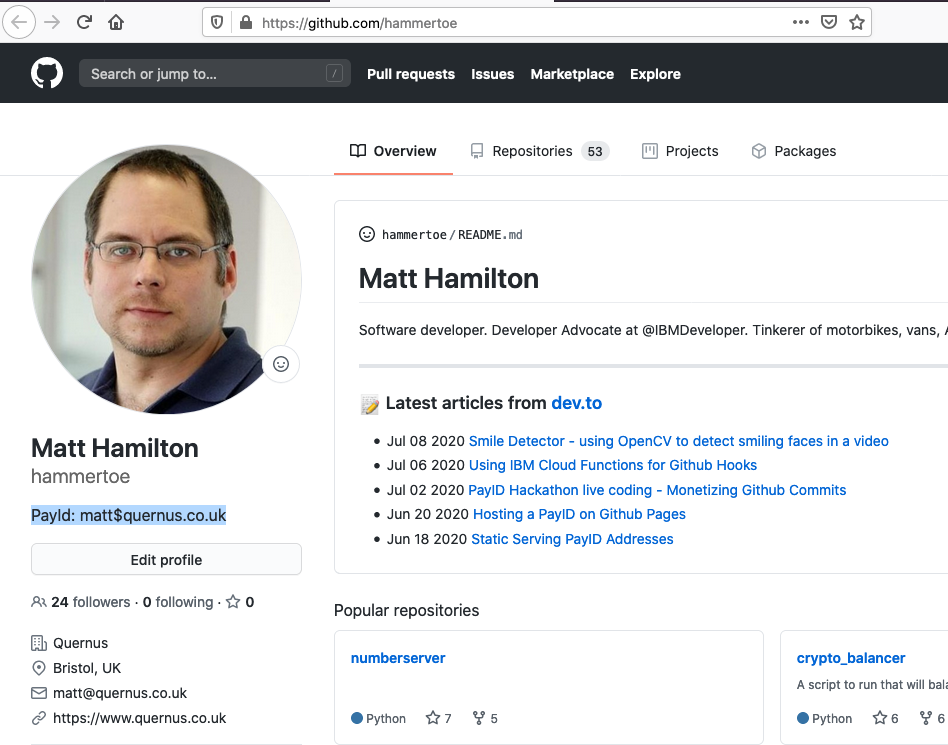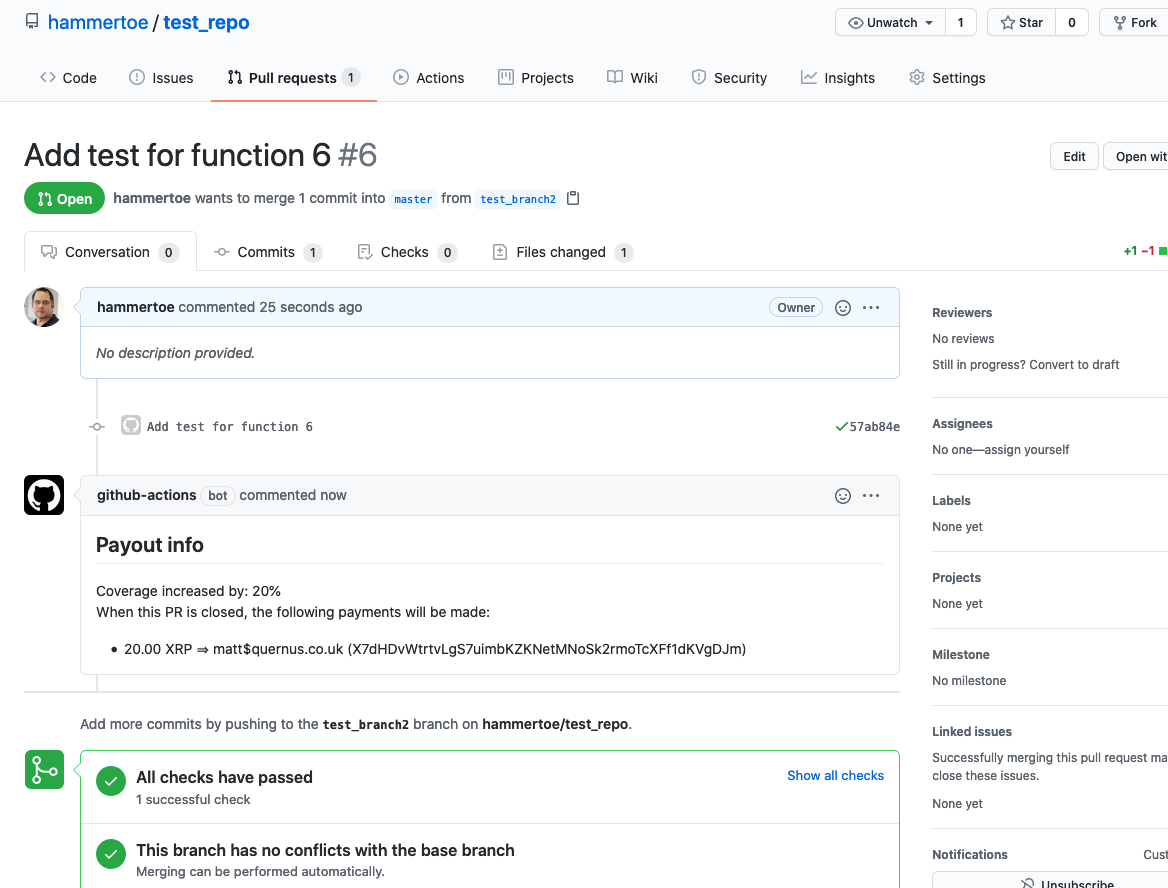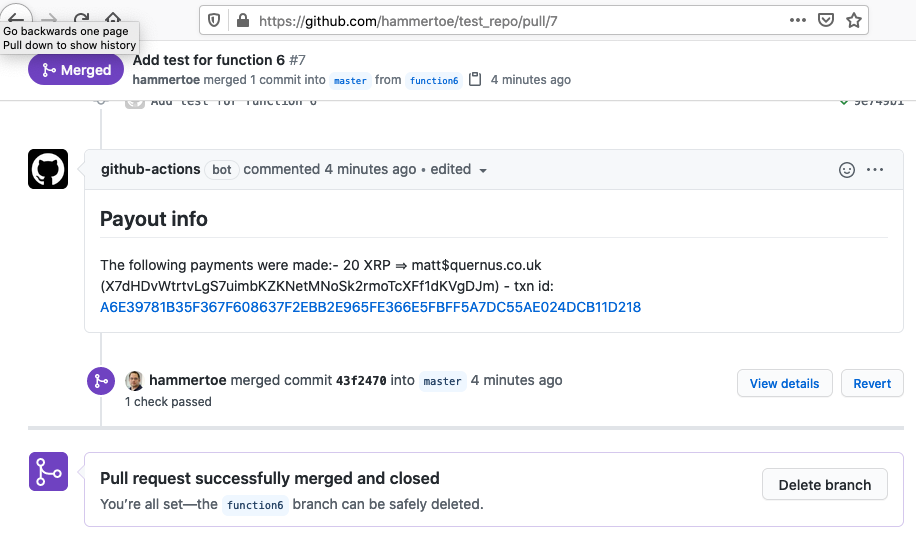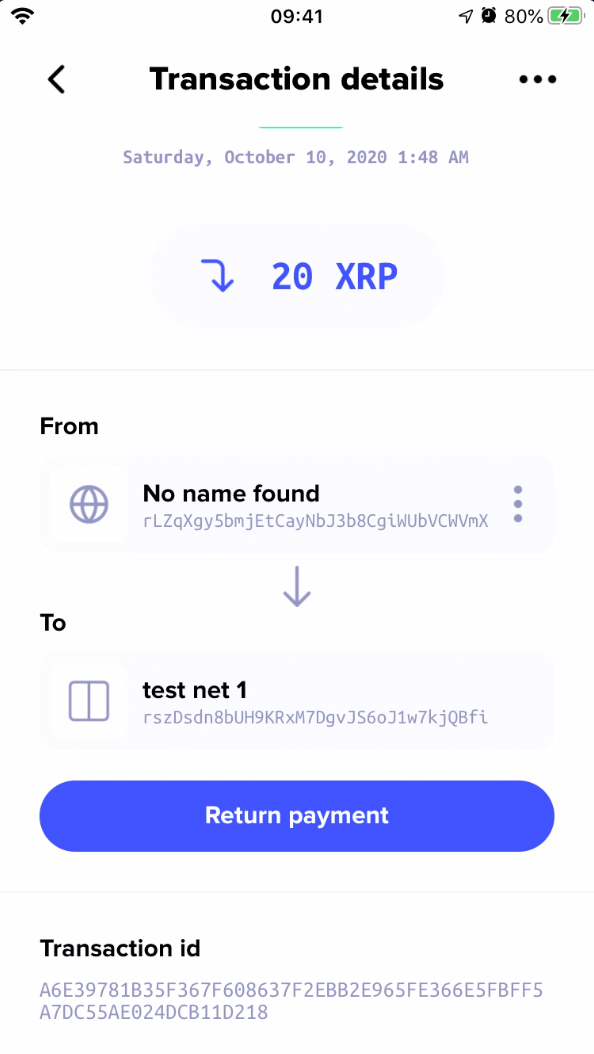A Github Action that pays a contributor in XRP for pull requests that increase the test code coverage of a repo
The idea is to incentivise testing and improve code quality
The address to send the payment to is looked up via PayIds from the PR opener's bio on Github.
When a PR is opened then the action checks the openers profile bio and looks for a PayID:
The action then puts a comment in the PR having resolved the PayID to an XRP address and calculated how much XRP to pay them based on increase in code test coverage:
The owner of the repo can edit the comment if they like to adjust the amount or remove/add additional payees.
Once the PR is closed then the action makes the actual payments and comments on the PR with the XRP Ledger txn id:
Within seconds the payment arrives and the destination wallet:
An example workflow:
name: PayID PR Coverage Action
on:
# Trigger the workflow on push or pull request,
# but only for the master branch
pull_request:
branches:
- master
jobs:
pay:
runs-on: ubuntu-latest
steps:
- name: Set up Python
uses: actions/setup-python@v2
with:
python-version: '3.x'
- name: Install testing
run: |
python -m pip install --upgrade pip
pip install pytest pytest-cov
- name: Checkout prior code
uses: actions/checkout@v2
with:
ref: ${{ github.event.pull_request.base.sha }}
path: .old-code
- name: Install old code dependencies
run: |
cd .old-code
if [ -f requirements.txt ]; then pip install -r requirements.txt; fi
cd ..
- name: Run tests on old code
run: |
cd .old-code
pytest --cov-report=xml --cov=foo test.py
cd ..
- name: Checkout current code
uses: actions/checkout@v2
with:
ref: ${{ github.event.pull_request.head.sha }}
path: .new-code
- name: Install new code dependencies
run: |
cd .new-code
if [ -f requirements.txt ]; then pip install -r requirements.txt; fi
cd ..
- name: Run test on new code
run: |
cd .new-code
pytest --cov-report=xml --cov=foo test.py
cd ..
- name: Run PayID
uses: hammertoe/payid_xrp_pr_coverage_action@master
with:
repo_token: ${{secrets.GITHUB_TOKEN}}
wallet_secret: ${{ secrets.PAYID_WALLET_SECRET }}
old_coverage_file: /home/runner/work/test_repo/test_repo/.old-code/coverage.xml
new_coverage_file: /home/runner/work/test_repo/test_repo/.new-code/coverage.xml
The above workflow will run a pytest code coverage over both the new and old code when a new PR is opened or synchornised. It will then add a comment to the PR stating who will be paid (having looked up the PayID in the committer's bio on Github)
The action takes the following input parameters:
inputs:
wallet_secret:
descrption: 'The secret key of the XRP wallet to pay from'
required: true
max_payout:
description: 'Maximum number of drops to pay out'
default: 100000000
environment:
description: 'Environment to use, TESTNET or LIVENET'
default: 'TESTNET'
server:
description: 'XRP Ledger server to use'
default: 'test.xrp.xpring.io:50051'
dry_run:
description: 'Dry run. Do not actually make payment, but report what would be done'
default: true
repo_token:
description: 'Repository token'
required: true
old_coverage_file:
description: 'Old code coverage file'
required: true
default: .old-code/coverage.xml
new_coverage_file:
description: 'New code coverage file'
required: true
default: .new-code/coverage.xmlNote above: by default this runs on the XRP TESTNET, you need to set the environment input parameter
to LIVENET and set the correct production server in server order to make payments on the live network.



